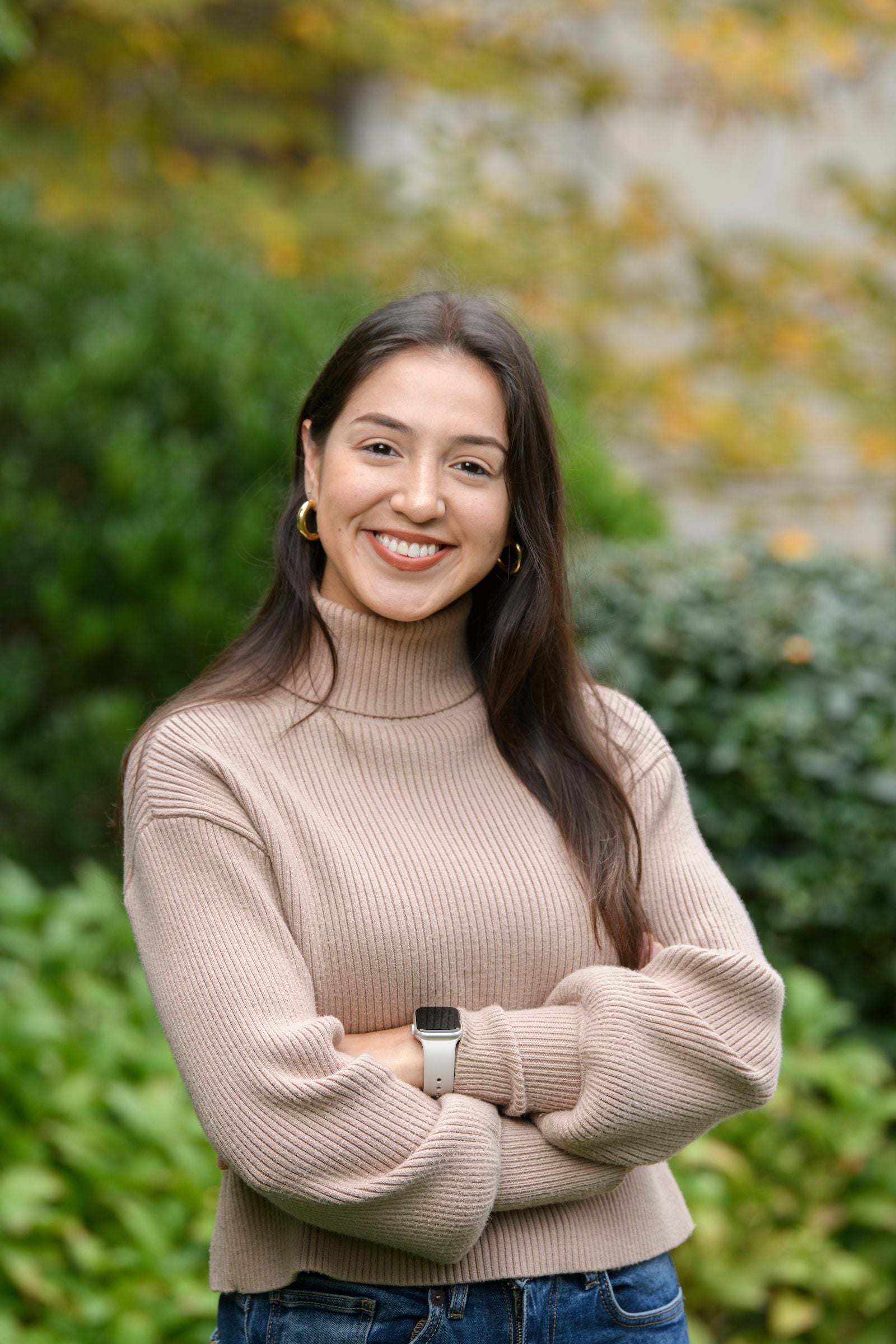By Vanessa Agudelo ’24

My commitment to achieving educational equity stems from my own experience in the U.S. public school system. As a child growing up in a low-income, immigrant, Latino household, I often found myself translating documents, bills, and even laws for my family. As new pupils from Latin America joined my public elementary school classroom in South Florida, I found my sense of moral obligation transcended my home. I recognized that the cultural and linguistic barrier between English-speaking teachers and Spanish-speaking students resulted in frequent miscommunications; it even caused unwarranted punitive action against students. Without hesitation, I sought to protect my peers and bridge the gap between what was said and how it was said.
While I am grateful that the tremendous responsibility that I faced in helping my family and peers navigate a foreign country fueled my strong passion for advocacy, I also recognize the need for an education system that fully supports all marginalized communities, including immigrant families, in their educational endeavors.
At Harvard, I have sought opportunities to engage directly with education issues and provide direct legal services to local low-income communities. During the fall of my 2L year, I served as a legal intern for the Massachusetts Department of Elementary and Secondary Education (DESE) through Harvard Law’s Child Advocacy Clinic. At DESE, I conducted research on issues related to school discipline and special education law, successfully wrote a motion to dismiss to the Bureau of Special Education Appeals, and assisted in educator license revocation cases.
Although this experience introduced me to the regulatory side of education law, I longed to work directly with students and decided to participate in The Direct Client Representation opportunity within the Education Law Clinic the following semester. The Education Law Clinic at Harvard Law School, a part of the Trauma and Learning Policy Initiative (TLPI), aims to help students, including those impacted by trauma, succeed at their highest levels in school and in life. The Clinic offers students the chance to engage in education advocacy through direct client representation, legislative advocacy, and impact litigation—three distinct opportunities that synergize to foster enduring systemic change in education.
Throughout the past three semesters, the Direct Representation Clinic has allowed me to realize my goal of directly assisting students by allowing me to provide representation to a Massachusetts family in their pursuit of special education services for a student with a significant cognitive disability. Like myself, the student is the daughter of immigrants, and her family does not speak English. Although my former experiences and proficiency in Spanish have facilitated my ability to empathize and connect with the family, I have also been exposed to the unique challenges faced by children of immigrants with disabilities. Legislation governing special education in the United States, such as the Individuals with Disabilities Education Act (IDEA), relies heavily on parent involvement. Although parent participation is a positive feature of the special education system, the system fails to adequately assist immigrant parents or those with limited English proficiency who may struggle to navigate the intricate special education landscape due to unfamiliarity or language barriers.
As a student attorney, I have been able to advocate for the family and the student’s educational needs by negotiating with school and district representatives in school meetings and collaborating with experts to ensure that their educational recommendations consider previous evaluations and are rooted in the family’s needs. The family has experienced numerous changes in their support services over the last year and a half, and it has been a privilege to remain a constant presence for the family through the advanced clinical opportunity.
My extensive engagement with the Clinic has also allowed me to deepen my understanding of state and federal special education law, gain hands-on experience crafting case strategy alongside the Clinic’s supervising attorney, liaise with other state and federal agencies that support students with Disabilities, and develop skills in counseling clients with limited English proficiency. Most importantly, it has broadened the scope of my commitment to equity in education.
Filed in: Clinical Student Voices
Contact Office of Clinical and Pro Bono Programs
Website:
hls.harvard.edu/clinics
Email:
clinical@law.harvard.edu